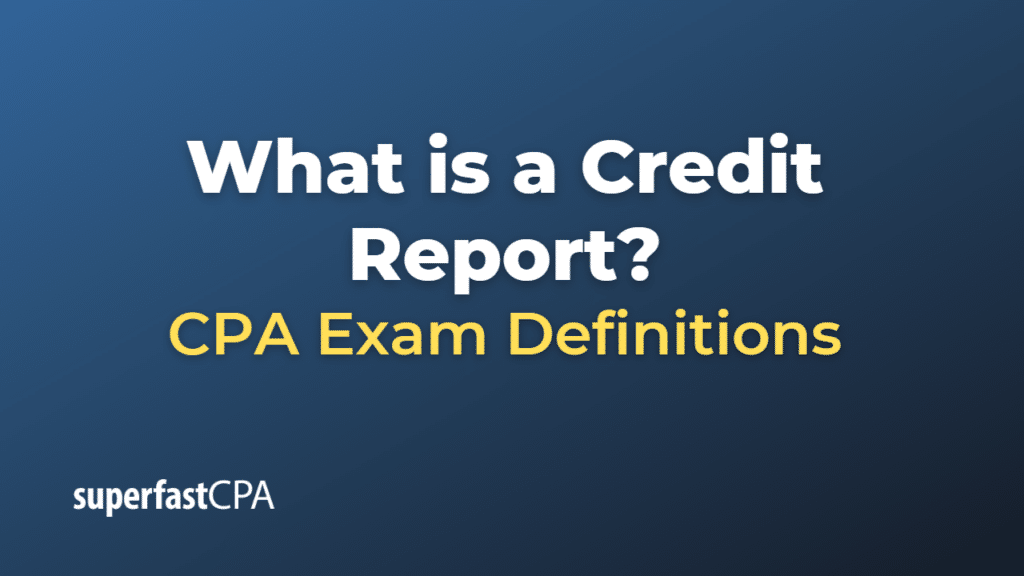Credit Report
A credit report is a detailed breakdown of an individual’s or business’s credit history, prepared by a credit bureau. It is used by lenders, landlords, and others to assess the creditworthiness of the entity in question.
For an individual, a credit report typically includes:
- Personal Information: Such as name, address, Social Security number, and employment information.
- Credit Accounts: All past and current credit accounts, including credit cards, mortgages, and loans, along with the date each account was opened, the credit limit or loan amount, the account balance, and payment history.
- Inquiries: A list of everyone who has accessed the credit report within the past two years.
- Public Record and Collections: Information about bankruptcies, foreclosures, lawsuits, wage attachments, liens, and judgments.
For a business, a credit report typically includes:
- Business Information: Such as the business name, address, and employer identification number (EIN).
- Credit Obligations: Details about the business’s credit accounts with various suppliers, lenders, and service providers.
- Payment History: Information about the business’s payment behavior, including any late payments.
- Public Records: Information about bankruptcies, judgments, and liens.
Credit reports are used to calculate credit scores, which are numerical representations of creditworthiness. Negative information, like late payments or bankruptcy, can stay on a credit report for several years and could lower the credit score. On the other hand, positive information, like timely payments, can help improve the credit score.
It’s crucial for individuals and businesses to regularly review their credit reports and correct any inaccuracies, as these reports play a critical role in many financial and business decisions. In many countries, individuals have the right to access their credit report from each credit bureau for free once per year.
Example of a Credit Report
Let’s use an example of an individual’s credit report:
John is looking to buy a new home and apply for a mortgage. Before approving his mortgage, the bank requests a copy of his credit report from one of the major credit bureaus (Experian, Equifax, or TransUnion in the U.S.).
Here’s a simplified breakdown of what John’s credit report might look like:
- Personal Information: John’s full name, current and past addresses, Social Security number, and employment information.
- Credit Accounts: Details of John’s credit card with Bank A (opened in 2010, credit limit of $10,000, current balance $2,000, no late payments), car loan from Lender B (opened in 2018, loan amount of $20,000, current balance $5,000, two late payments in 2020), and student loan from Lender C (opened in 2005, loan amount of $30,000, paid in full in 2015).
- Inquiries: List of entities that have accessed John’s credit report in the past two years, including the current mortgage lender, a car dealership from when he was car shopping last year, and a credit card company that sent him a pre-approved offer.
- Public Record and Collections: No bankruptcies, foreclosures, or collections, but there’s a tax lien from 2019 for unpaid state taxes.
The bank uses the information in John’s credit report to assess his creditworthiness. Despite the tax lien and a couple of late payments, John has a long history of mostly on-time payments, so the bank might decide to approve the mortgage, possibly at a higher interest rate to account for the slight risk indicated by the negative items on his credit report.
Please note that this is a simplified example. Actual credit reports contain more detailed information and might be more complex. Also, different countries may have different practices and laws regarding credit reports.













